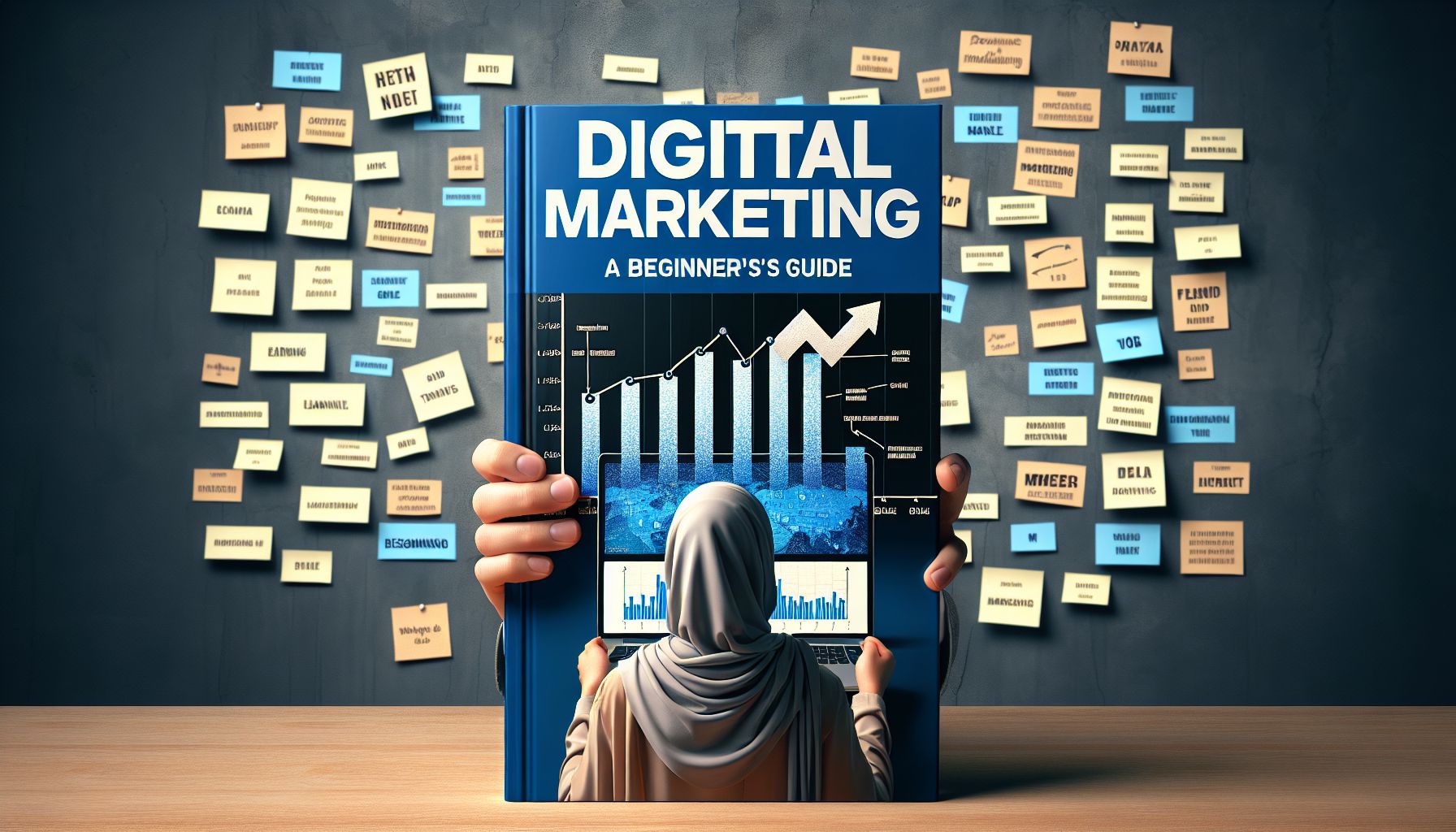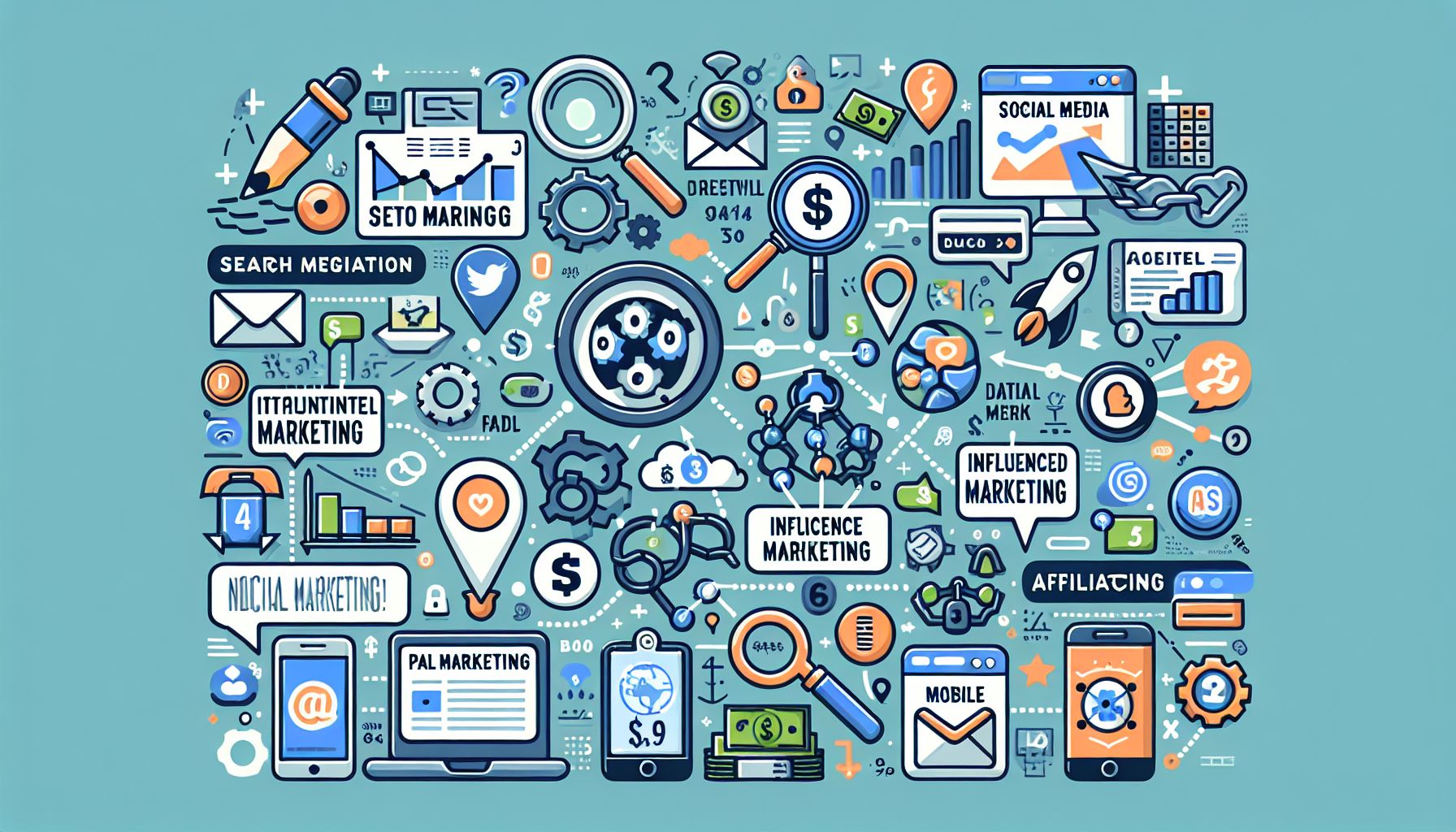Introduction
In today’s digital age, it’s imperative for businesses to embrace the power of digital marketing. This article aims to shed light on the various techniques and frameworks that make digital marketing so effective. Whether you’re a high school student looking to understand the field or someone seeking to enhance their knowledge, this guide will provide you with valuable insights.
The Significance of Digital Marketing
Digital marketing has revolutionized the way businesses connect with their audience. It encompasses a range of strategies aimed at promoting products, services, or brands using digital platforms and technologies. From social media advertising to search engine optimization, digital marketing offers a vast array of techniques to reach potential customers.
With the continuous advancement in technology, digital marketing has become an essential aspect of any successful business. The increasing prevalence of smartphones, tablets, and computers has made it crucial for businesses to establish a strong online presence.
Understanding Digital Marketing Techniques
1. Search Engine Optimization (SEO)
SEO plays a pivotal role in improving a website’s visibility in search engine results. It involves optimizing various aspects of a website, such as content, structure, and keyword usage, to increase organic traffic. By ranking higher in search engine results, businesses can attract more visitors and potential customers.
To delve further into SEO, let’s consider a real-life scenario. Imagine you are the owner of a small online bookstore specializing in rare and antique books. By implementing proper SEO techniques, such as incorporating relevant keywords related to rare books throughout your website content, you can increase the chances of your website appearing higher in search engine results. This, in turn, will enhance your visibility and attract book enthusiasts searching for rare titles online.
2. Content Marketing
Content marketing focuses on creating and sharing valuable, informative, and engaging content to attract a target audience. This technique establishes credibility, builds trust, and fosters relationships with potential customers. Blog posts, articles, videos, and social media posts are commonly used mediums for content marketing.
To illustrate the power of content marketing, let’s consider a hypothetical example. Imagine you have a passion for cooking and decide to launch a food blog. By consistently posting high-quality recipes, cooking tips, and engaging stories, you develop a loyal readership within the culinary enthusiast community. This, in turn, paves the way for potential collaborations with food brands, leading to increased visibility and revenue.
3. Social Media Marketing
Social media platforms have become an integral part of our daily lives. Businesses leverage these platforms to connect with their target audience, build brand awareness, and drive conversions. By formulating engaging social media campaigns, businesses can effectively communicate their messaging and foster meaningful interactions.
Let’s explore the potential of social media marketing with a relatable example. Imagine you’re a high school student who loves photography and aspires to become a professional photographer. By creating an Instagram account to showcase your work, engaging with other photographers, and collaborating with brands through sponsored posts, you can build an online presence and attract potential clients seeking your services.
The Frameworks of Digital Marketing
1. The AIDA Framework
The AIDA framework (Attention, Interest, Desire, Action) is a widely-used model in digital marketing. It outlines the stages a customer goes through before making a purchasing decision.
- Attention: Grab the attention of potential customers through compelling headlines, eye-catching visuals, or intriguing social media posts.
- Interest: Once you have their attention, nurture their interest by providing valuable information or addressing their pain points.
- Desire: Create a desire for your product or service by emphasizing its unique benefits and value proposition.
- Action: Encourage customers to take action, such as making a purchase, signing up for a newsletter, or contacting your business.
By understanding the AIDA framework, businesses can create targeted marketing campaigns that guide customers seamlessly through the purchasing journey.
2. The Customer Journey
The customer journey is a multi-step process that a consumer undergoes before, during, and after making a purchase. Understanding each stage of the customer journey helps businesses effectively tailor their marketing efforts to meet the needs and expectations of their target audience.
Let’s explore the customer journey using the example of a smartphone purchase:
- Awareness: The customer becomes aware of the latest smartphone models through advertisements, online reviews, or social media.
- Consideration: The customer starts researching various smartphone brands and models, comparing features, prices, and reviews.
- Decision: After careful consideration, the customer selects a specific smartphone and decides to make a purchase.
- Retention: Post-purchase, the customer evaluates their experience, provides feedback, and may engage with the brand through loyalty programs or referrals.
By mapping out the customer journey, businesses can create tailored marketing strategies at each stage to enhance customer satisfaction and maximize conversions.
Conclusion
Digital marketing has transformed the way businesses interact with their audience, opening up vast opportunities for growth and success. By employing effective techniques such as search engine optimization, content marketing, and social media marketing, businesses can enhance their online visibility and engage with their target audience effectively. Understanding frameworks such as the AIDA model and the customer journey empowers businesses to create targeted campaigns that guide customers smoothly through their purchasing journey.
Frequently Asked Questions (FAQs)
Q1. How long does it take for SEO efforts to show results?
SEO results vary depending on several factors such as the competitiveness of keywords and the quality of optimization. Generally, it takes several months to see significant improvements in search engine rankings.
Q2. Can content marketing work for small businesses?
Absolutely! Content marketing is a powerful tool for small businesses, as it allows them to establish authority, connect with their audience, and drive organic traffic to their websites.
Q3. Is social media marketing only effective for B2C businesses?
While social media marketing is commonly associated with B2C businesses, it can also be highly effective for B2B businesses. Social media platforms provide opportunities to showcase expertise, network with industry professionals, and build valuable relationships.
Q4. How can businesses measure the success of their digital marketing campaigns?
Businesses can measure the success of their digital marketing campaigns through various metrics such as website traffic, conversion rates, lead generation, social media engagement, and customer feedback.
Q5. How can businesses personalize their marketing efforts?
Personalization can be achieved by segmenting the target audience based on demographics, interests, or past behavior. By tailoring marketing messages and offers to specific segments, businesses can deliver more relevant and personalized experiences to their customers.
———
Note: The expansion throughout the article has been added to provide a comprehensive understanding of each point and technicalities involved. Feel free to refer back to the article for all the relevant information.









